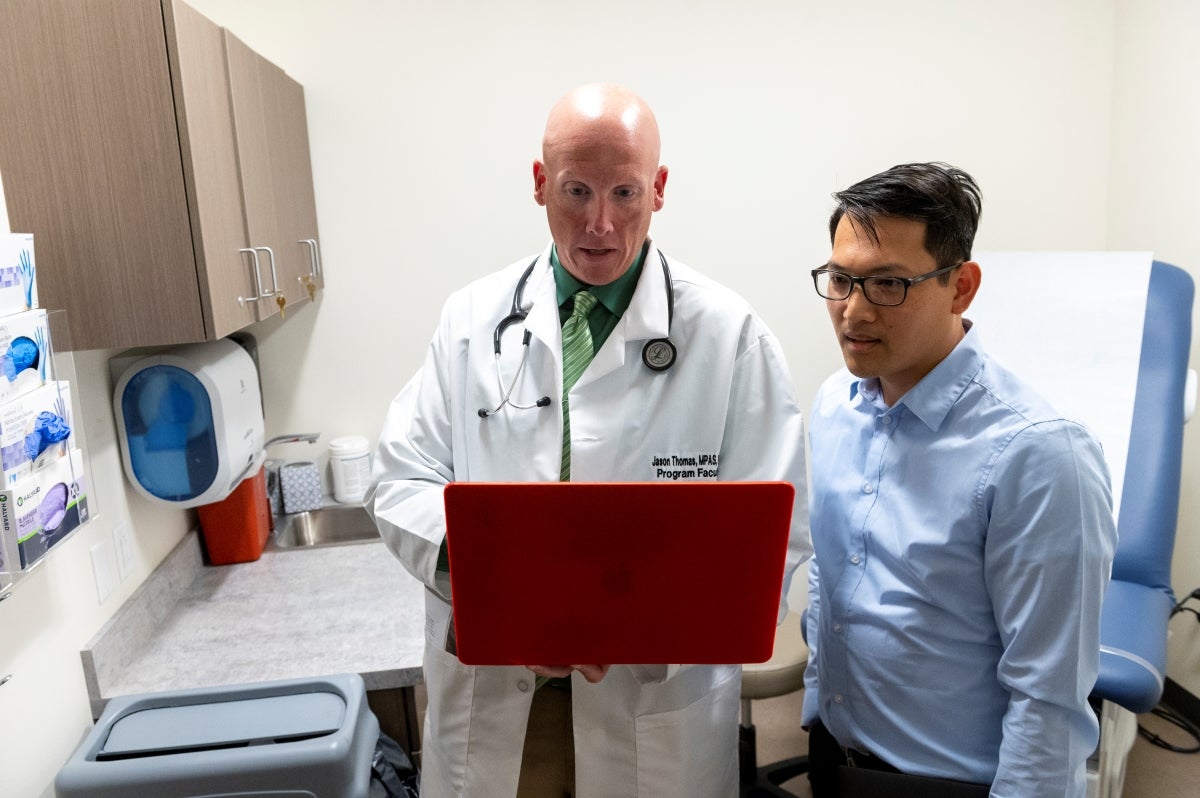Many practicing physician assistants/associates who are thinking of applying to the University of Pittsburgh Doctor of Medical Science (DMSc) program ask about the job-integrated internship—known as the Internship Experience course—in the curriculum. They wonder about the requirements, their options for completing it, and if they can fit this into their already busy work and home lives.
We know you can only fit so much more into your day—that’s why our DMSc program leverages what you are already doing in the workplace and teaches you leadership skills to enhance and improve your work. The Internship Experience course is designed to be integrated within your regular work schedule, requiring a minimum of six hours per week in your work setting.
Progression Through the Program
The 100% online DMSc program can be completed in as little as three terms because it makes the most efficient use of your time. Even before the first term begins, DMSc Program Director Mary Allias and other faculty are already familiar with candidates’ quality improvement project ideas that were introduced in the personal statement of their application. By the time the first term’s classes begin, candidates are ready to start putting what they are learning into action.
The purpose of the job-integrated internship is to provide a setting for the quality improvement project. Each course in the first term is directly applied to the planning and design of the project. Candidates study their workplace setting, the situation they are trying to improve, the needs of vital parties in their setting, and then what evidence-based solutions could be adopted.
In the second term, candidates deploy their quality improvement project based on the plans and research developed in the first term. Finally, in the third term, the job-integrated internship is where they will analyze the results of the study and present their outcomes so that by the end of the program, they are recommending future action based on their results. Even before they graduate, Pitt’s DMSc candidates are leading real and impactful change.
Types of Internships
DMSc candidates have the option of completing their internship requirements in one of three ways:
- Job-Embedded: Most candidates choose this option, meaning they can fulfill their internship requirement where they are currently working.
- Aspirant: Candidates identify a role in which they would like to work in the future and complete an internship based in that setting.
- Community Outreach: Candidates participate in community-based health or wellness initiatives as part of an existing organization or in a newly created way.
Quality Improvement Project Examples
The following are examples of what our DMSc candidates have identified as topics in their job-integrated internship:
- Improving processes that help patients access care more easily
- Mitigating health disparities for at-risk populations
- Enhancing techniques for teaching PA students to provide inclusive patient care, develop their professional identities, and learn how to think critically
- Improving access to mental health care
- Developing more patient-centered discharge instructions
- Helping practicing PAs provide excellent patient care as they transition between medical specialties
- Supporting clinicians in adopting best practices for telehealth care
The value of our post-professional, job-integrated internship is virtually limitless. It integrates seamlessly into the curriculum and into DMSc candidates’ real-life work and provides an experience that can’t be created in the classroom alone.

